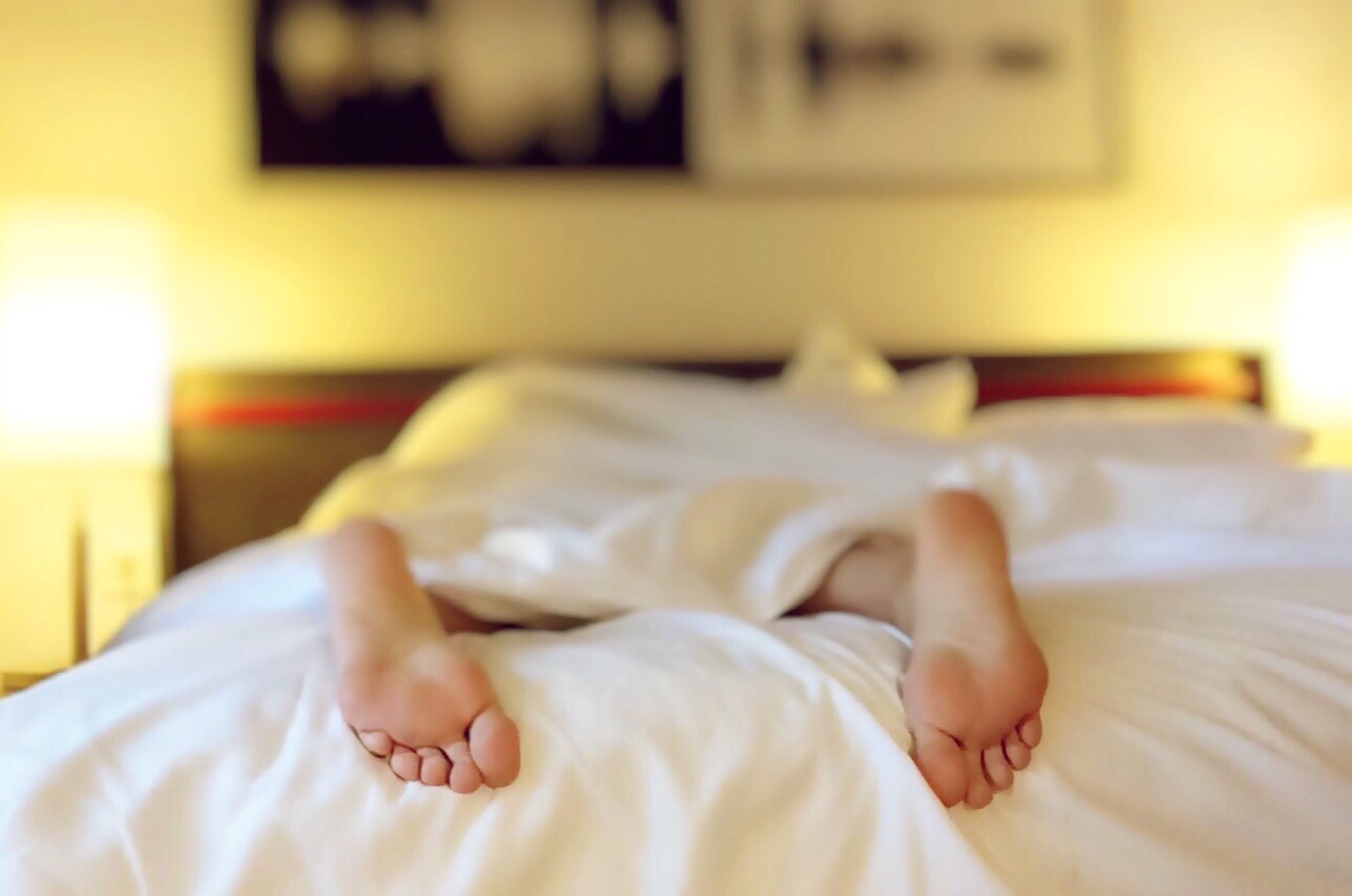The Power of Sleep
Written by Kevin Maher, PCLC
Sleep is this incredible period of our lives where we are able to reset our ability to be focused, alert, and emotionally stable. It doesn’t take a rocket scientist to know that sleep is the foundation of all psychological and physical health and yet so many of us struggle to get regular quality sleep. Our blog post this month focuses on sleep health and routines that may help benefit the architecture of our sleep and in turn make us happier, healthier, and more productive. The following sections detail some things that will help support the quality and quantity of your sleep, but you will of course have to experiment with each of these yourself to find out what works best for you.
Light
There are two primary biological forces that influence your sleep: one is a chemical force and the other is a circadian force. Let’s start with the chemical force: hormones. In order to begin talking about hormones we’ll start by talking about sunlight.
Sunlight plays an extremely important role in our sleep/wake cycles. As early homo sapiens we (and all animals) evolved in sync with the natural timing of the 24 hour rotation of the earth. In fact, there are neurons in our eyes that are designed to receive a particular quality of light—that light being the low angle light at the beginning and end of each day. Because of this, our sleep cycle is “tethered” to our periods of wakefulness in a very intimate way. When we receive light in our eyes early in the morning our brain signals the body to secrete a hormone called cortisol which is responsible for our experience of feeling awake in the morning. The timing of this release of cortisol is important because it sets a “clock” in our bodies that lasts around 12 to 14 hours. Towards the end of this cycle our bodies begin to shift into getting ready for sleep by releasing another hormone called melatonin. This is influenced both by our circadian rhythm and by evening sunlight.
So the takeaway here is to try to get at least 2-10 minutes of sunlight into our eyes as close to waking up as possible and 2-10 minutes of sunlight into our eyes in the late afternoon and evening. Typically after 4-5 days of experimenting with this you should notice your body naturally aligning to a set schedule. In addition, the addition of exercise in the morning can help support this rhythm.
A few disclaimers here: please do not stare directly at the sun or any strong light for that matter that may damage your eyes. In addition, it has been shown that obtaining sunlight through a car windshield, a kitchen window, or through sunglasses is significantly less effective than just stepping outside for a few minutes.
Set a Schedule
Having a regular morning and evening schedule can greatly support the quantity and quality of your sleep. These regular times can act as anchors to “lock-in” your circadian rhythm and promote consistent good quality sleep. Of course life gets in the way and our routines get disrupted—that’s ok. Just aim to return to your routine at your own pace and be kind to yourself along the way. Creating routines can be hard, especially if we have inconsistent work and school schedules. But try your best to find a rhythm that works best for you and try to stick with it. My heart goes out to all of you new parents who are reading this… you will be in the clear soon enough.
The Bed
Your bed should be strictly reserved for sleep and sex. When we invite other activities into our bed such as eating dinner, watching tv, or scrolling through social media, we train our bodies to associate the bed with these types of activities. The goal here is to train our bodies to associate the bed and pillow only with sleeping. The more strict you can be with this the better. Try not to eat in bed, maybe consider charging your phones in a different room, and consider using an actual alarm clock in the morning.
A quick note on screen use—as we just discussed above, the influence of light into our eyes at night can have significant negative effects on our bodies ability to switch into sleep mode. The worst thing you can do when you can’t sleep is to look at your phone or computer. This activates our brains to signal our organs and cellular clock that we should be getting up and can really throw our systems out of line. If you find yourself struggling to fall asleep, get up after 20 minutes and do some deep breathing, stretching, meditation, or go for a walk.
Caffeine
Many of us use caffeine. I look forward to my cup of coffee everyday! But excessive use of caffeine, particularly towards the end of the day and in the evenings, can have negative effects on our sleep. The reason for this has to do with a naturally occurring molecule called adenosine. It builds in our bodies and nervous system throughout the course of a day and is responsible for making us feel sleepy. If you were to get a restful 8 hours of sleep you would wake up with a very low amount of adenosine in your system. Towards the end of the day adenosine levels become much higher which makes sense as we are all generally much more tired after being awake for 12-14 hours. Caffeine acts as a “contender” so to speak to adenosine in that it binds to the adenosine receptor and prevents adenosine from binding to those receptors and therefore gives us the experience of feeling alertness. We are all affected by caffeine differently. That is to say some of us are highly sensitive to caffeine while others have a much higher tolerance for caffeine so trust your own judgment, know when your cut-off time in the day might be, and stick to it.
Alcohol
Alcohol has culturally been associated as being a sleep aid. We are all familiar and likely enjoy having a nightcap with dinner or after a long day at work but recent studies have shown that alcohol does not help with the quality of our sleep. In fact, alcohol has been shown to increase the frequency of periodic waking throughout the night (either consciously or not) and also interferes with our ability to enter REM sleep (Rapid Eye Movement sleep) which is considered the most important and vital stage of our sleep cycle. With reduced levels of REM sleep we tend to feel extremely unrested, edgy, tense, are more sensitive to sensations like textures and sounds, and we have a much harder time managing our emotional states. Think about it—on days when we haven't slept much we are typically much grumpier, sensitive, and irritable. So if you use alcohol to fall asleep consider this information and perhaps experiment taking a week or two off from drinking and observe any differences you notice with your mood, energy levels, focus, and relationships.
Diet and Exercise
This is a massive topic and one we won’t dive too deep into in this blog post but there are a few things to note. Your sleep/wake cycles are influenced by the type and timing of your feeding and if/when you receive exercise. So for instance eating a massive meal right before bed generally might interfere with your body's ability to get to sleep or at least get good quality sleep. Of course we are all different and have many different dietary preferences, restrictions, and body types so consult your doctor or dietician on this to know what foods work best for you. Generally speaking though we should aim to eat a diverse and balanced diet consisting of whole foods, quality proteins, and foods high in fat. We should also shoot for about 120 minutes of “zone 2 cardio” per week. Zone 2 cardio just means some form of exercise where you can still hold a conversation with a friend. For example, going for a hike with a friend or furry friend for 30 minutes 3-4 times a week.
Key takeaways:
Get sunlight into your eyes for 2-10 minutes as close to waking as possible followed by 2-10 minutes of sunlight late in the day.
Set a regular sleep schedule and try your best to stick to it.
Keep your bed reserved strictly for sleeping and sex.
Monitor your caffeine consumption and try to avoid drinking caffeine during the evening or night.
Avoid drinking alcohol to fall asleep.
Eat regular healthy meals at consistent times and try to get at least 120 minutes of “zone 2” cardio exercise per week.


